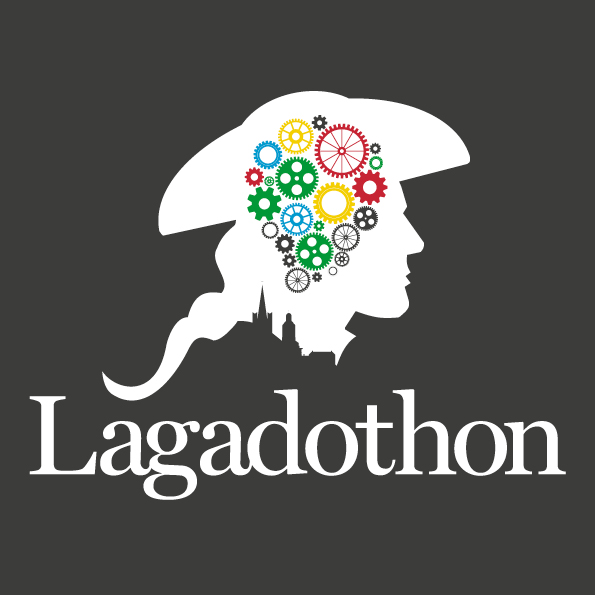Dr Charles Inskip (UCL Department of Information Studies, c.inskip@ucl.ac.uk) and Dr Sophia Donaldson (UCL Careers, sophia.donaldson@ucl.ac.uk) introduces what the Lagadothon did to help their ‘On The Move’ ILG-funded project.
In her recent overview of workplace information literacy, Alison Head, leader of the influential Project Information Literacy, said there is “a significant learning gap between what information skills students are taught in university and what they need in their lives once they graduate” (Head, 2017). Numerous researchers into information literacy at work have spoken about this gap (Goldstein, 2014; Sokoloff, 2012; Wiley, 2014).
As part of our ILG-funded project, ‘On The Move: transitioning information skills into the workplace’ (http://www.ucl.ac.uk/dis/research/collaborativeprojects/on-the-move) Dr Sophia Donaldson (UCL Careers) and I have been interviewing employees at all levels in a City insurance firm about their experiences of the effective use of information. We’ve also interviewed some students planning to work in the financial sector about their experiences. This has allowed us to take some steps towards understanding the difference between how people speak about their experience of information literacy in the workplace and at university. We hope that the value of understanding more about this ‘semantic gap’ will be to enable librarians, careers consultants, and universities as a whole – as well as workplaces – facilitate the transition from uni into work.
In our work we adopted Marc Forster’s approach, using phenomenography to explore nurses’ experiences of information literacy (Forster, 2015). Forster built a framework of themes and categories which seemed to resonate with our data, and we wanted to explore more deeply whether his work would connect in some way with ours. The benefit of taking a similar approach would allow us to make some comparisons between our findings and his, and it would also add to the much-needed evidence base on workplace information literacy.
While coding our interview and focus groups texts using Forster’s themes we could start to see how similarities between what the insurance folks and the nurses were saying. This meant we could more confidently continue with the analysis and move towards the next stage, which was to devise a tool which would help students planning to enter the insurance sector understand more about how to communicate their skills to potential employers.
We used our data to identify frequently occurring terms and used these terms to construct statements about different information literacy experiences at different levels. Looking at these statements we realised how much they were starting to look like a personality test in a lifestyle magazine – Forster’s personae (or ‘categories of description’) could be ‘information personalities’ and his ‘themes of expanding awareness’ could be different levels within those personalities.
Armed with this insight we built a questionnaire as an initial prototype, and took it to the LILAC Conference in Swansea in April. We’d entered the Lagadothon, hoping to use this as a chance to test the prototype on some real librarians. We’d already piloted it internally to help identify technical issues but as librarians were part of the audience we were planning to engage with it was a great opportunity to get some of their insight. During the Lagadothon we handed out our paper personality tests (with in-built informed consent form to allow us to use the data we gathered ethically) and explained a bit about what we’d be doing. Participants dutifully answered the questions and gave us some verbal and some written feedback. Then we moved on to the next table and did it again – and again! This was a fantastic opportunity to test our tool and we got some very helpful insights about the wording, ease of use, relevance and layout. We then used this to develop the tool and took the next version along to other events over the summer. In all we field-tested the tool six times, each time moving it on a little towards what we hope will be an accessible and engaging online tool which helps to share our findings in a meaningful way.
Without the Lagadothon experience – and the diligent input of the participants in the testing (and of course Marc Forster, all our interviewees, hosts and funders) we would not have had the chance to develop the tool so thoroughly on such targetted audiences. We’d recommend anyone developing information literacy interventions based on research to take an iterative development approach like this – it allows you to test something in a supportive atmosphere with expert users who really want to share their opinions and ideas with you. And what could be better than that?
*The ‘On The Move‘ online tool is in development and will be with you shortly.
Find out more about Lagadothon and how to enter in 2018.
References
Forster, M. (2015). Six ways of experiencing information literacy in nursing: The findings of a phenomenographic study. Nurse Education Today, 35(1), 195-200. doi: http://dx.doi.org/10.1016/j.nedt.2014.06.005
Goldstein, S. (2014). Transferring Information Know-How: Information Literacy at the Interface Between Higher Education and Employment. Retrieved from https://www.informall.org.uk/wp-content/uploads/2015/11/Report-on-transferability-of-IL-beyond-academia-FINAL.pdf
Head, A. J. (2017). Posing the million dollar question: What happens after graduation? Journal of Information Literacy, 11(1), 80-90. doi: https://doi.org/10.11645/11.1.2186
Sokoloff, J. (2012). Information Literacy in the Workplace: Employer Expectations. Journal of Business & Finance Librarianship, 17(1), 1-17. doi: http://dx.doi.org/10.1080/08963568.2011.603989
Wiley, M. (2014). A review of the literature on current practice in the development of employability skills. Retrieved from https://www.sconul.ac.uk/sites/default/files/documents/Employability%20Literature%20Review%20June%202014_0.pdf

